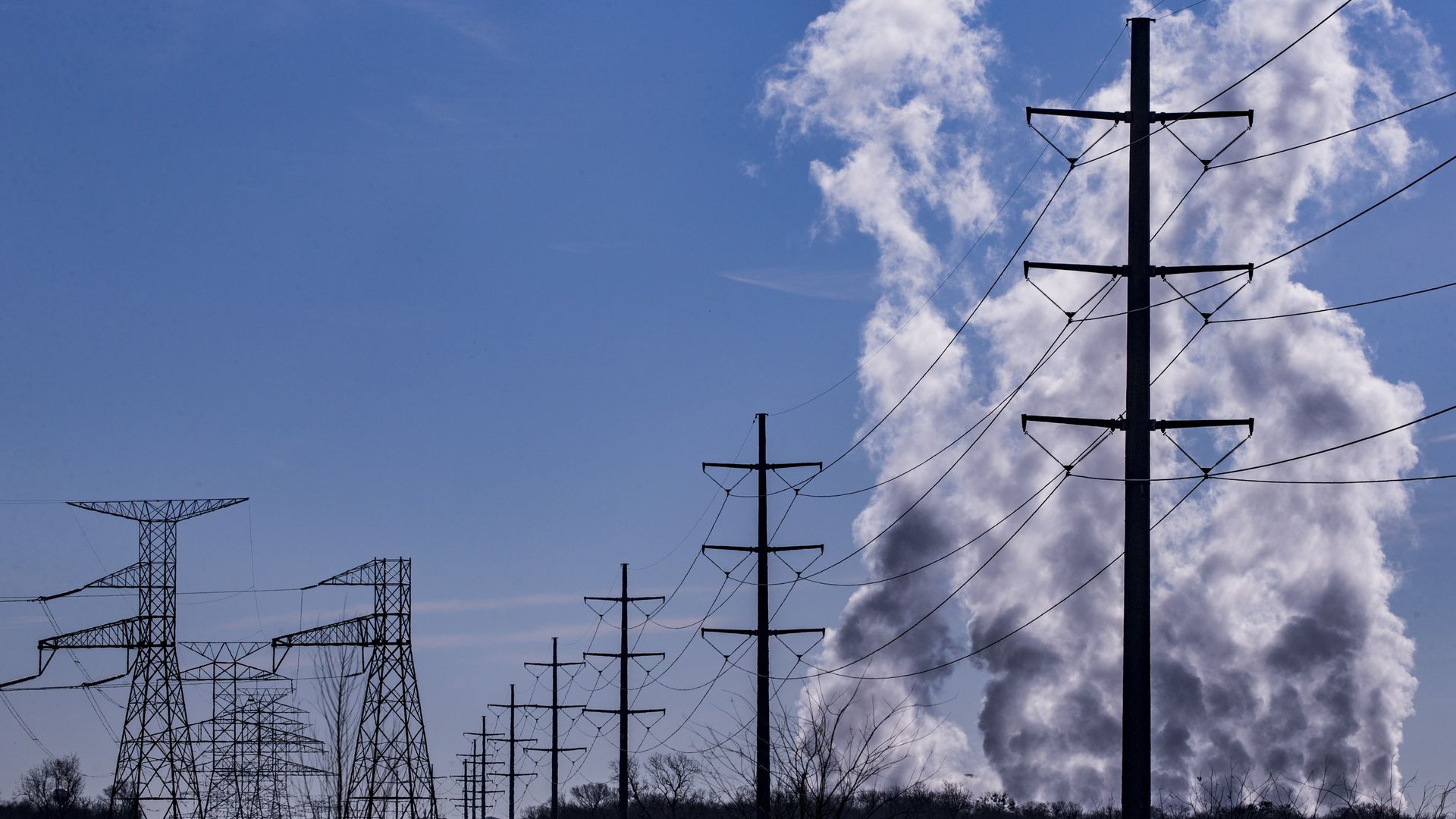Sep 18, 2018 - Energy & Climate
Expert VoicesHow fossil fuels could become a zero-emissions energy source
Add Axios as your preferred source to
see more of our stories on Google.

Smoke rises from a natural gas power plant outside of Dallas, Texas, on January 04, 2018. Photo: Samuel Corum/Anadolu Agency via Getty Images
